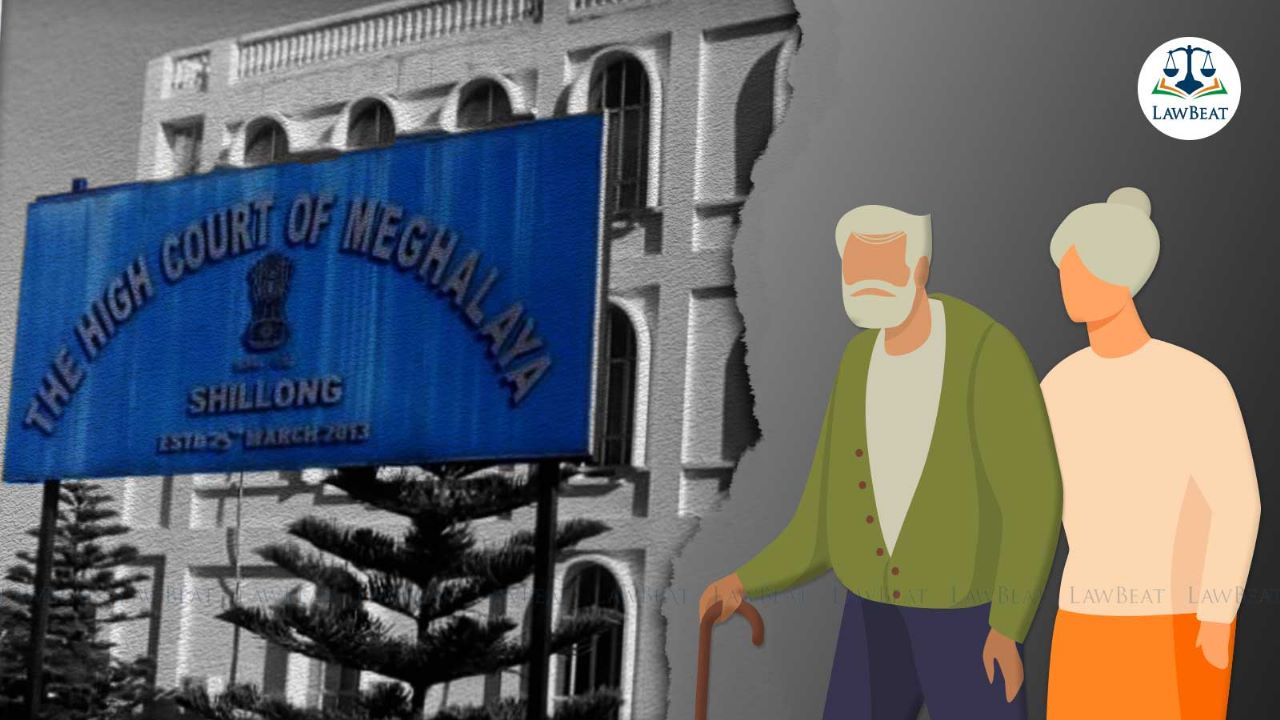Transfers cannot be stopped on the flimsy ground of age or infirmity of elderly parents: Meghalaya HC

An employee had challenged his transfer citing ill health of his aged mother as a ground to allow him to continue his service in his present place of posting.
The High Court of Meghalaya recently observed that transfer of government employees cannot be stopped on the flimsy ground of age or infirmity of elder parents of the government employee.
The observation was given by a division bench of Chief Justice Sanjib Banerjee & Justice W. Diengdoh. The bench said,
“Transfers cannot be stopped on the flimsy ground of age or infirmity of elderly parents of government employees. It is but natural that with advanced age, a person would be suffering from some form of disability and it is not an extraordinary situation that the employee was faced with. There is no doubt that the employer considered the employee’s case and even reconsidered the same following the orders of the Court, but found nothing special for the employee to be retained in his present place of posting. Once so much appears to the Court that it was in the usual course that an employee was sought to be transferred by the public employer and the employee’s representation against the order of transfer had been considered, the Court should refrain from interfering in the matter. There is no doubt that the employee in the present case has abused the process to obtain undeserving orders of status quo to stall his transfer and the time of joining his transferred place of posting.”
In the present matter, the employee was served a transfer notice by the employer. The transferred place of posting was Tawang. Shortly upon receipt of the transfer order, the employee made a representation, citing the ill-health of his aged mother as a ground to allow him to continue in his present place of posting. The representation was disposed of by a terse order and a release order of June 29, 2022 followed. The employee filed a writ before the High Court, however the same was disposed of with direction to the employer to reconsider his representation. The employer reconsidered his representation, but the decision remained the same. Another writ was filed before the court by the employee. The High Court passed an interim order directing the company to file an affidavit clarifying certain matters, meanwhile status quo was to be maintained. It is this status quo status that was challenged by the employer.
The counsel for the employee argued that even if his representation is rejected, there is a period of 60 days which is permitted to the employee before he has to join the transferred place of posting. The employee claimed that in the communication of September 16 2022, the employer acted in breach of Rule 17 of the applicable transfer rules by calling upon the employee to immediately report to the transferred post. The second ground urged was that the transfer rules required a certain committee to be constituted to look into the representation of an employee who had been served an order of transfer and seeks to resist the same. According to the employee, such board contains a member from the medical fraternity who was best able to gauge the medical condition of the concerned employee or any close relative if a ground in such regard is cited to resist the transfer. The employee said that the constitution of the committee, in this case, was inappropriate and it was not clear as to whether any committee was constituted at all for the purpose of going into the merits of the employee’s representation.
Court noted that Rule 17 of the NEEPCO transfer policy allows a transferred employee two months’ time from the date of the administrative order rejecting his representation to join the transferred post and Rule 15.2 of the said transfer policy requires a committee to be constituted to consider the special grounds, if cited.
The court after hearing both the sides was of the view that this was not a case of any extraordinary ground for resisting the transfer as the employee’s mother was aged and infirm and suffered from a permanent disability. It was not the employee’s case that there would not be an adequate medical facility in the transferred place of posting, should the employee be required to take his mother along with him, court noted.
“At any rate, Rule 15 of the transfer policy merely recognises that certain special grounds may be cited to resist an order of transfer. These special grounds include education of children, aged parents, employment of spouse and the medical conditions as defined in NEEPCO Medical Attendance Rules. Further, Rule 15.1 clearly stipulates that the functional criticality or requirement of the employer would have overriding priority over anything else,” Court stated.
In view of the above, the court said that the refusal by the employer to accede to the employee’s request would imply that the functional criticality or the administrative requirement of transferring the employee outweighed other considerations.
Accordingly, the employee was directed to join his transferred place of posting by November 15, 2022.
